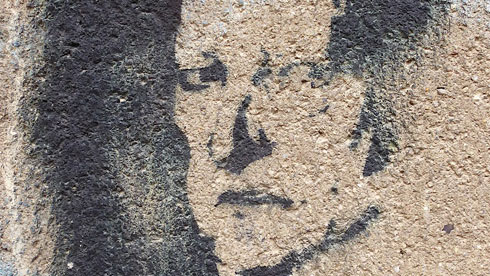Probably no book has been so frequently accused of being unreadable. Nevertheless, The Phenomenology of Spirit by Georg Wilhelm Friedrich Hegel (1770-1831) has just been translated into Dutch. Although a hard read, this classic of philosophy (published in 1807) can help us understand the ongoing euro crisis. The book suggests that politicians will always fail while they continue to think of the crisis as an exclusively economic problem.
The reaction of Martin Schulz, president of the European Parliament, to Britain's plan to hold a referendum about its EU membership is illustrative in this respect. A bad plan, according to Schulz. "Cameron's Europe à la carte is not an option. We must focus on jobs and growth, not on endless discussions about European treaties."
The EU as the bringer of prosperity. It is a view which is broadly shared among policymakers, in the Netherlands by social leaders like Prime Minister [Mark] Rutte, but also by the chairman of business organisation VNO-NCW, Bernard Wientjes. "Two-thirds of the Netherlands' exports go to Europe," he recently told news station BNR Nieuwsradio. "A million and a half jobs depend on Europe. We earn €180bn because of Europe. Europe and the euro are the backbone of the Dutch economy."
Euro emphasis a mistake
Reading Hegel makes it clear that this emphasis on euros is a mistake. The greater the wealth, the greater the support for the EU? That is not how things work, as the German philosopher explained 200 years ago.
Those who wish to understand the euro crisis can suffice with the long passage about the struggle for recognition in which people find themselves. [[To be seen and heard is almost more important for us than breathing]]. The hunger for recognition automatically leads to conflict. The relationship of two people, the “master-slave dialectic,” belongs to Hegel like the “Übermensch” belongs to Friedrich Nietzsche and the banality of evil to Hannah Arendt. The slave can never give the master the recognition they crave for. True recognition cannot be enforced.
In the long term the hierarchical relationship between a master and his slave is unsustainable. In Hegel's view, the master and the slave paved the way to the society in which all citizens have the same rights: democracy. Almost 200 years later the American philosopher Francis Fukuyama elaborated on this view. When he proclaimed the end of history, he pointed to democracy as the form of governance which best fulfils the need for recognition. Elections are not only a way to regulate the transfer of power. The fact that citizens can have their say is equally important.
Devaluing political participation
However, the euro crisis teaches us that people who are really democratic to the core are hard to find. Martin Schulz, the president of the body which is supposed to symbolise democracy no less, reduces the British referendum to an administrative matter, which takes up a lot of time more than anything else. This devalues political participation to a luxury. Fine when things are going well, inconvenient in the middle of a crisis.
Nevertheless, in his own way Schulz is arguing in favour of a society that is based on equality. He believes that the countries in northern Europe (rich) must help those in southern Europe (poor) by means of a wide range of support measures. This results in greater equality, albeit not of the type envisaged by Hegel, but the equality for which Karl Marx argued in the middle of the 19th Century.
Money is not the answer
We have increasingly started reading Hegel's book through the eyes of Marx, for whom problems in the first place indicate an economic defect. Many policymakers reason in a similar manner. If the electorate is complaining, it is probably to do with prosperity. This has led to the view that euros form the most important instrument available to them. They tackle dissatisfaction with a subsidy here and a financial incentive there. The tacit assumption is that the voting behaviour of voters is primarily determined by their wallet.
[[Whoever reduces citizens to nothing more than ‘homo economicus’ has developed a blind spot.]] That citizens may be motivated by something other than economic factors is difficult for them to understand. This spring a survey by [pollster] Maurice de Hond showed that 64 per cent of Dutch citizens want a referendum on the EU. It is unlikely that this distrust will disappear with the Schulz scenario of more jobs and growth. With Hegel in mind, it is quite feasible that citizens are willing to give up some prosperity if this means they remain master of their own destiny.
Dubious love of democracy
The [Dutch] De Hond survey (of a panel of 2,000 people) showed that people are most concerned about respect for democracy in the EU. In addition, politicians have given cause to doubt their love for democracy. Luxembourg Prime Minister Jean-Claude Juncker, the former head of the Euro Group recently told to German magazine Der Spiegel "if need be, [the politicians] have to pursue the right policies, even if many voters think they are the wrong ones."
Apparently democracy is acceptable as long as it produces the correct election results. For politicians The Phenomenology of Spirit should serve as a wake-up call. With the euro crisis in full swing, the book could not have been published at a better time.
Was this article useful? If so we are delighted!
It is freely available because we believe that the right to free and independent information is essential for democracy. But this right is not guaranteed forever, and independence comes at a cost. We need your support in order to continue publishing independent, multilingual news for all Europeans.
Discover our subscription offers and their exclusive benefits and become a member of our community now!












